The Final Fantasy series has been the torch bearer for Japanese Role Playing Games (JRPGs) since the 90’s (at least in the Western markets), and consequently, has spawned a long running series with 16 numbered entries accompanied by a number of spin offs based on the property.
This top ten will do away with the side stories, and sequels – so no Final Fantasy VII Remake, FFXIII-2, FF X-2, etc. The list also won’t take into consideration the numbered games which are MMORPG’s like Final Fantasy XI, and XIV.
After all of those subtractions we are left with 14 entries that will be taken into consideration. The list contains some spoilers, and some humor. As always, the list is subjective, and the comments section at the end of the list presents an opportunity to voice your agreement or disagreement with it.
This a revision of our previous listing (made 3 years ago), as a new entry will make the cut, and our previous #10 will leave the list…forever.
So, without further ado:
10. Final Fantasy (NES) 1987
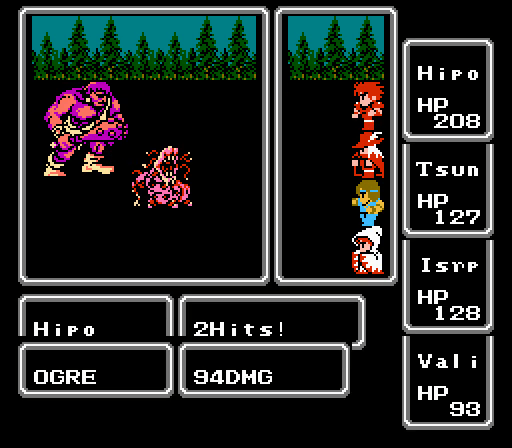
NER Score: 8.0 (Origins Edition)
Metacritic: 7.9
The first Final Fantasy game almost never got made, and after it did, it was almost was called ‘Fighting Fantasy’. Licensing problems forced Square to switch the word ‘Fighting’ with ‘Final’, and I believe the move was for the best.
Preposterous as it might sound, Square was near bankruptcy in the late 80’s, and they really didn’t want anything to do with Hironobu Sakaguchi’s RPG idea for two reasons: Sakaguchi wasn’t liked in the company, and the executives at Square thought Final Fantasy would flunk in sales.
Enix’s Japanese success with Dragon Warrior (Quest), however, prompted Square to green light Sakaguchi’s project, and the rest, as they say, is history. With over 1.90 million units sold (counting various remakes and ports), FF was a commercial success during the NES era.
Why it deserves the ranking:
While I wouldn’t call Final Fantasy a revolutionary game even for its time (Ultima and Dragon Quest are worthier of such praise), FF did something that DQ could not. It made JRPGs accessible to worldwide audiences, and popularized the genre as a viable one on home consoles.
While the game’s storyline can be considered basic, and simplistic in contrast to subsequent FF games, and JRPGS as a whole, no one can deny that in 1987 Final Fantasy was as epic as games got. The game’s easy to get into, but deep Turn Based combat system, and its use of vehicles to traverse the over-world made it a special experience in those early gaming days.
Even if the game as a whole has not aged well, many of the concepts that it introduced were series mainstays for more than a decade.
Why it might not:
Basic story, and pedestrian translation. FF is an example of an early game in the genre, and it would be a boring (if tedious) experience to play today. A 79 Metacritic score isn’t that impressive either.
Mont Cessna’s take:
It might have been fun back in the NES days, but it’s almost unplayable now, compared to FF 10.
9. Final Fantasy V (SNES) 1992
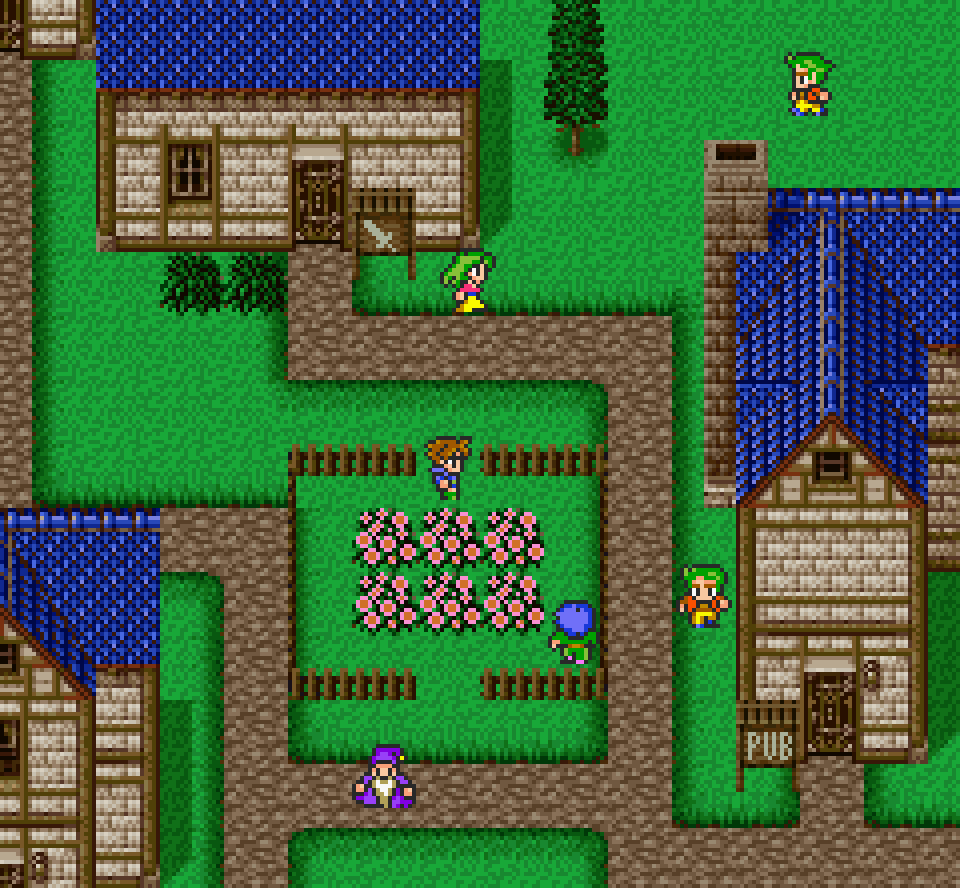
NER Score: 8.5
Metacritic: 8.3
The fifth installment in as many years since the original Final Fantasy, is perhaps the most complex Final Fantasy of them all. Yoshitaka Amano returns for the fifth time as the series’ character designer, and FFV keeps the tradition of a story revolving around the Crystals.
What differentiates Final Fantasy V from other entries in the series is its Job/Class system which is deep and allows for unparalleled customization. The game sold 2 million units in Japan, and according to one of the game’s translators the game was never sold in America (Until the Anthology PS1 release) because Square deemed the game ‘inaccessible’ to the average (western) gamer.
Why it deserves its ranking:
The Job system. The series never featured such a complex character progression system before FFV, and certainly never went back to the same system afterwards. Killing the last boss with a ‘Coin Toss’ ability (after getting whooped a few times before trying that approach) shows the amount of diverse skills that can be used after Mastering a variety of Job Classes. Like every other Final Fantasy game, the music is top notch, and the story is decent enough.
Why it might not:
One word, or rather name: ExDeath. ExDeath has to be the stupidest name ever given to a villain in an RPG game. Kind of sounds like the name of a failed 90’s heavy metal band. The plot itself is actually nonsensical at times. However, we must remember that this game was released in 1992, and it wasn’t until 1992’s Sega CD’s Lunar: The Silver Star that JRPGs actually began to showcase great dialog, and character development. From FF1-5, the series told stories, but the dialog was very basic, and the character development was lacking in several areas. Lunar raised the dialog, and scripts’ bar in the genre closer to the level seen in anime shows of the day.
Mont Cessna’s take:
An excellent entry in the series that sets the graphical groundwork for FF6, FFV’s extremely complex job system can be a turnoff for some players.
8. Final Fantasy XV (PS4/XboxOne) 2016
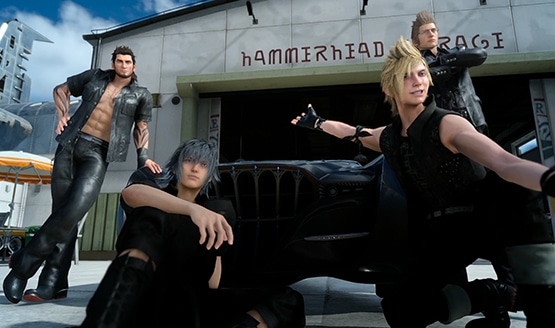
Metacritic: 8.1
A band of best buddies, which seems to be more manufactured than a modern Korean pop boy band, embark on a road trip that will eventually turn into a world saving quest. The premise, and the all male cast weren’t exactly well received at first, but FFXV, after being taken out of Nomura’s destructive hands flourished under Tabata, and eventually became a pretty good game.
Final Fantasy XV is the first game in the numbered series to ditch turn based battles in favor of an action system. It served the game well, as the more ‘open world’ is heavily reliant on monster hunts and – therefore – battles galore await.
Why it deserves its ranking:
After FFXIII, many would say that the series had nowhere to go but “up”. However, Final Fantasy XV did more than just turn out to be a good game. FFXV restored my faith in a series that I had given up hope for after Sakaguchi departed Squaresoft.
The game took some bold risks, and even introduced the series to a semi open world that did a good job in creating a certain atmosphere for the player. Having a car, and Coleman camping equipment made FFXV the most ‘realistic’ FF yet, and it felt like a return to FFVIII’s art style.
By including every FF soundtrack ever made, FFXV feels like a celebration of previous titles, and even Magitek enemies make a resurgence as a nod to FFVI. Considering that Tetsuya Nomura had the game under his care for 8 years, it is a miracle that FFXV was eventually saved, and turned into a very good game by Hajime Tabata.
The all male cast actually worked in terms of storytelling, and it provided a surprisingly emotional conclusion to the quest. The story is weak, and even Lunafreya which is a massively important character didn’t get enough character development for my liking. The movie Kingsglaive did a much better job presenting her character, than the actual game did.
However, the all male party, and their friendship tale pretty much took over whatever flaws the plot had, and it was probably all around the most engaging story that the series has seen since FFX. While some might have consider having FFXV ranked above other Sakaguchi FF games a heretic move, I have to say that Noct’s love for his friends was much more powerful, and convincing than Squall’s love for Rinoa ever was.
Why it might not:
Final Fantasy hasn’t been Final Fantasy since Sakaguchi’s departure. FFXV is better than FFXIII, but that might not be saying much because FFXIII was a complete disaster. There is also the issue of people looking at FFXV’s cast and seeing this:
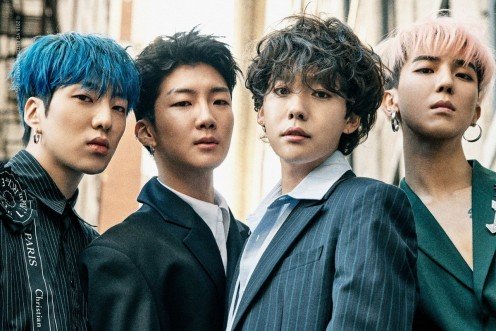
Though, to be fair, gladiolus would wreck all of the above members at once by flicking his finger. The fact of the matter is that FFXV – even more so than FFVIII’s Mexican teen soap opera cast – forgoes conventional wisdom in order to present a cast more akin to the pop culture icons of the times than an actual party of battle hardened heroes.
One of Final Fantasy VIII’s legacies in terms of artistic direction, and storytelling is the expectancy that the world has to be saved from impending doom brought about by a terrible Villain by a cast that looks like this:
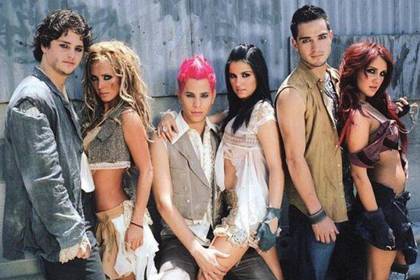
Rather than by a cast that looks like this:

The comparison is extreme, but for the sake of argument, it is one that must be made. The fact that you have to watch an anime mini series, and a pretty CG film in order to ‘grasp’ FFXV’s deep story doesn’t help matters either.
The other problem with FFXV is its actual open world, which isn’t really open.
FFXV’s game world is large, but largely restrictive in the things that you can and can’t do. It pales in comparison to The Witcher 3’s world, and Zelda’s own foray into the “western” open world style with Breath of the Wild.
In many ways FFXV succeeds at modernizing the FF series, and making it a better game than FFXIII was, yet in many others the series remains behind every modern Western Open World RPG that has been released over the last decade, and way behind Zelda’s own reinvention of itself.
Mont Cessna’s take:
Kill it with fire. Final Fantasy has gone so far off the rails from what made 6, 7 and 10 great, and gone full boy band.
7. Final Fantasy XVI (PS5) 2023
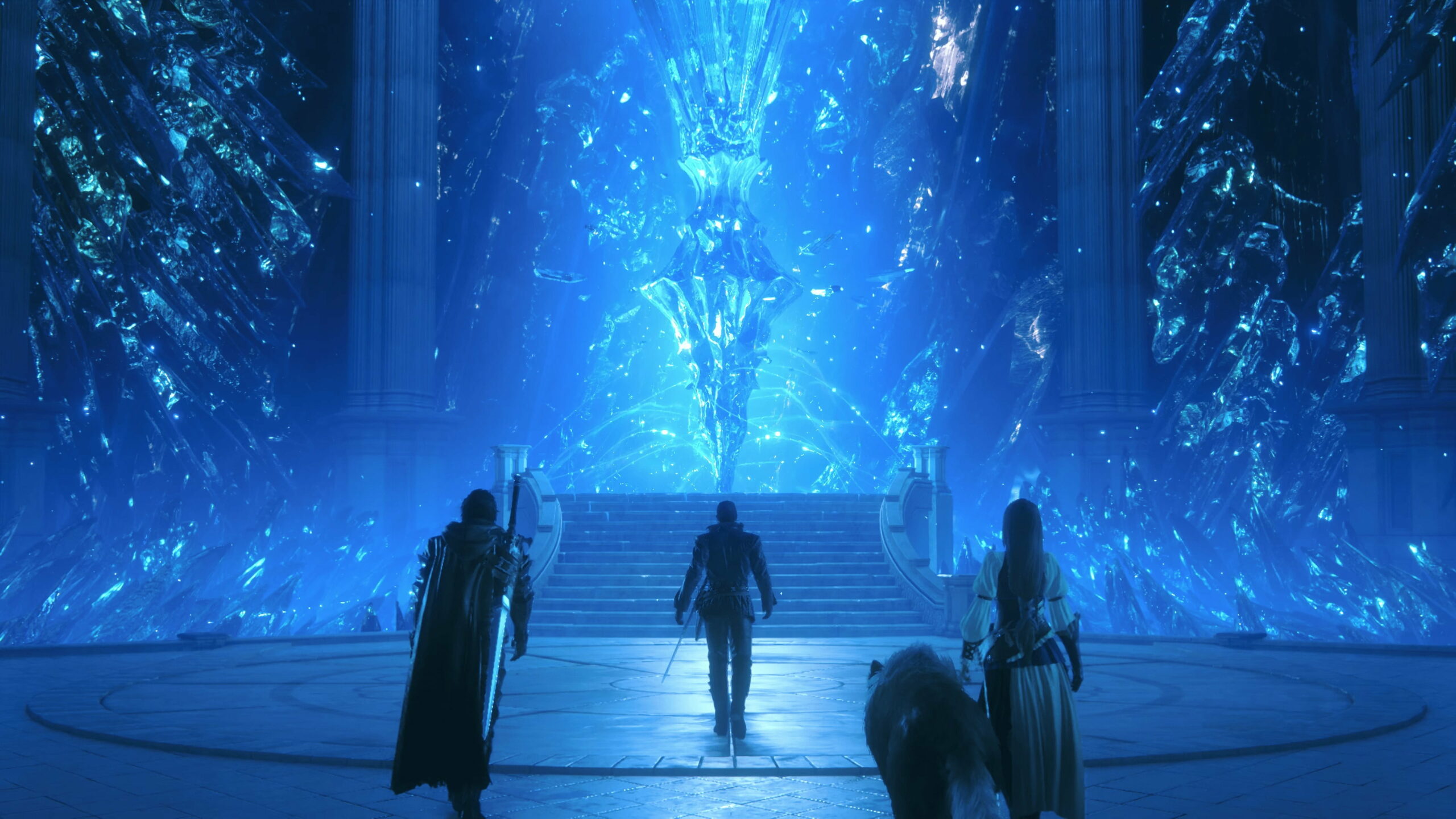
I am sure that Final Fantasy XVI’s inclusion on the list will be controversial. Our JRPG group has consistently argued over the game’s greatness (or lack there of), whether it is a “Final Fantasy” title, or not, and over the game’s overall linear gameplay design. However, the truth is that Final Fantasy XVI is the highest rated mainline Final Fantasy game since 2006’s Final Fantasy XII.
Praised for its engaging storyline, but held back by its linearity and somewhat simplistic action combat, Final Fantasy is not contending for Game of the Year. In a year where Tears of the Kingdom, Baldur’s Gate, and Starfield exist…it might not even win awards in other individual categories.
That said, FFXVI does a heck of a job in delivering a memorable audio/visual cinematic presentation to its key storyline moments, and that makes it one of the better Final Fantasies that can be played…at least for a single playthrough.
Why it Deserves its Ranking:

I enjoyed my FFXVI playthrough more than I did my Final Fantasy XV one, and I think I would rather play FFXVI again than I would the first, and fifth entry in this series. I understand Final Fantasy V being ranked below it will be a great point of controversy – and hate – towards my person…because I am sure that back in 1992 the game was more impressive an RPG than FFXVI is today in 2023.
However, Final Fantasy V was brilliantly, but also at times tediously, frustrating due to the complexity of its Job Class system. The system required hours of grinding, and while it never got as a bad as Dragon Quest (Warrior) VII, it was one of the more complex JRPGs of its day. On the other hand, Final Fantasy XVI is ‘stupidly’ simple, and I liked that. I was able to finish FFXVI fairly quickly, and thus, had more time to dive back into Tears of the Kingdom’s Hyrule just in time for Starfield’s release. So, Thank you Final Fantasy XVI!
On a more serious note, FFXVI does have one of the better stories to come out of a Japanese RPG in the last…I don’t know…10-15 years? I literally found myself playing Final Fantasy XVI just to get to the next big plot point. The game’s pace was aided by a simple take on action combat that allowed me to breeze through its linear levels in order to move the plot forwards swiftly.
I always played Final Fantasy games for their Storylines and Musical scores, and Final Fantasy XVI delivered on both fronts. Also, it must be stated that Final Fantasy XVI has the best incarnation of Cid..ever..he is a better character than protagonist Jon Sn0-I mean Clive Rosfield.
In a universe where Cid Highwind exists…that’s high praise indeed.
Final Fantasy XVI’s induction on this list kicked FFXII to the curb. My next statement will sound contradictory, but I feel that it is the truth: FFXII is a better game, and a better JRPG than Final Fantasy XVI, but Final Fantasy XVI is a better ‘Final Fantasy’ and this is a “Top Ten” Final Fantasy games list.
Why it Might Not:
Remember the part about playing just to get to the next big plot point? Well, the issue with Final Fantasy XVI is that its world is so linear, and so confined, that there isn’t much incentive to do much beyond playing the main storyline missions. The game has side quests, and its small levels do have hidden materials, and enemies, but all of the aforementioned are of pedestrian quality in their implementation.
This is never truer than in the game’s tedious and boring side quests. I wouldn’t have had an issue with these…if they weren’t forced upon the player during the main quest. I hated those segments, and it made me question, at times, whether Final Fantasy XVI had been a tad overrated by some reviewers in terms of its gameplay design…the game just isn’t that fun to ‘play’, and it certainly lags behind in the complexity and skill that combat systems in other action-RPG games like Elden Ring, and Tears of the Kingdom require of the player.
Finally, as a PS5 exclusive, the game is nowhere near as impressive a visual showcase as Final Fantasy X was in 2001 for the PS2.
6. Final Fantasy VIII (PS1) 1999
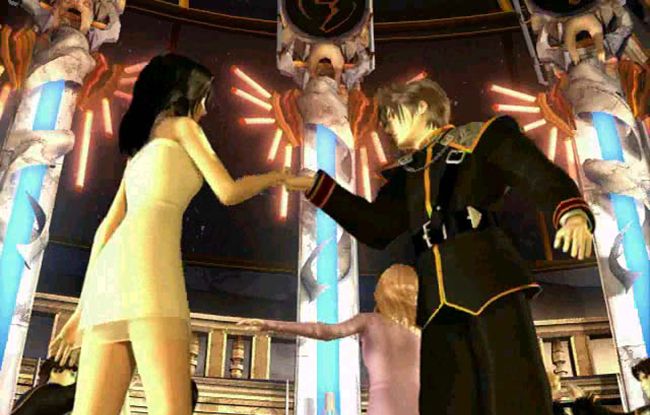
Metacritic score: 9.0
Final Fantasy VIII, might have been the first time that Tetsuya Nomura was given complete freedom in designing the game series’ characters (complete with their back stories), and the result of it is an amnesiac cast (Equipping Summons erased their memories…) of young High School Students who are 17 in the story, but in reality look 25. If that sounds like the premise for a Mexican Teen Soap Opera from the late 90s, early 00s, then you are not mistaken (and probably watched too much Univision).
2000’s ‘Primer Amor: A Mil Por Hora’ is that Mexican soap opera. It came packed with High School Students dressed in cool black military outfits. It is truly eerie that Mexican, and Japanese pop cultures would converge in such a way in the late 90s. A Mil Por Hora came out nearly a year after FFVIII, so perhaps, FFVIII was more inspiring during its epoch than I have given the game credit for.
You be the judge:
Protagonist Squall Lion heart was actually supposed to be more feminine had Nomura gotten his way (thankfully Kitase had better sense).
Conceptual direction aside, FFVIII was a visual tour de force of the PS1. It is the most gorgeous JRPG available on the system, with only FFIX having a strong case as a better looking game. Final Fantasy VIII also introduced some new concepts, and gameplay shifts to the series (and JRPGs in general).
The Junction system, and the fact that spells had to be drawn from ‘draw points’ across the game world was a jarring change that some people loved, and others detested. A four Disc beast in its hey day, FFVIII was a more about style than substance, and it worked for the game. With over 9 million units sold to this day (across all platforms) the game was also a resounding commercial success.
Why it deserves its ranking:
Out of all the games from Final Fantasy VI to FFX, Final Fantasy VIII is by far the weakest entry in the series. However, being the weakest entry out of that particular all time great cast during the peak of the series’ run is akin to being the weakest member of an NBA all star team. Said member would still kick major butt.
FFVIII brought ‘reality'( at least in terms of artistic direction), to a series that had been previously defined by sword and sorcery (FF1-5), and Steam Punk mixed with Magic (FF6-7) settings. While futuristic in most aspects, FFVIII also has a mix modern architecture, and clothing styles for its characters. The world had rental cars, trains, machine guns, and ballroom dances.
It was a fresh take on the genre back in 1999, and truth be told it was an impressive game at the time of its release. The ‘Draw’ spell system eventually made a return in Final Fantasy XV.
Story wise, while the characters for the most part lacked interesting backgrounds, and the entire story dealt with “time compression” which is another word for “nonsensical mess”. The characters did have better written dialog. and more depth added to their personalities than the characters in previous games in the series.
Why it might not:
I had called FFVIII the black sheep or odd duck of the series back in the early 00’s. Of course, FFXIII would eventually come around, and completely take the mantle of “black sheep” away from VIII. That doesn’t mean FFVIII is a great game, it was all style, and no substance and that was enough in the early days of 3-D graphics.
FFVIII started the tradition of Squaresoft elevating pedestrian games into false pedestals of “greatness” by virtue of the game’s amazingly well done CG scenes. Quite simply, critics and fans alike were blinded by the flashy presentation and conned into rating the game higher than it deserved.
For starters, the Junction system turned many people off. The nonsensical story about Guardian Forces (summons) erasing the memories of those who equip them as an explanation for the amnesiac cast was an easy cop out for Nomura and Kojima. Time compression itself seemed like an odd choice for a story to be used in the FF universe (Of Course Nomura and Kojima would later screw up FFVIIR by adding alternate timelines to it).
The script that eventually became Xenogears was turned down by Squaresoft as a possible FFVII story concept because it was too complex and dark. But for all of the complexities of Xenogears, its story actually manages to make sense, which is something that FFVIII never achieves.
Strip away FFVIII’s presentation, and you are left with the second worst playing game in the series, and decent card game. I have never hated a last boss (in terms of frustration), as I did Final Fantasy VIII’s last stretch of battles.
Mont Cessna’s take:
I’ll be honest. This is one of my least favorite Final Fantasy games.
5. Final Fantasy IV (SNES) 1991
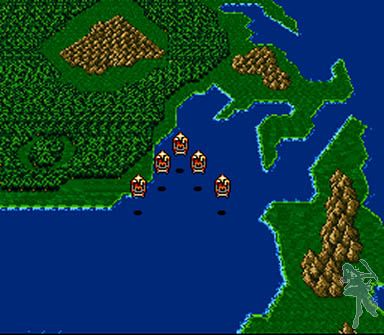
NER Score: 7.5 (Chronicles Edition)
GameRankings: 8.7
Released in 1991 for the SNES, and known as FFII in the West, Final Fantasy IV pioneered the Active Time Battle system (time didn’t stop for enemies, and party members while taking turns during combat). The system would become a permanent staple of the series.
Final Fantasy IV is often credited for advancing the way that stories were told in the series. With a cast of characters in which each member had a different personality and back ground, FFIV added some much needed depth to series.
Why it deserves its ranking:
Out of all of the Final Fantasies prior to the release of Final Fantasy VI, FFIV is the one that tells the best story. Now, this isn’t exactly saying much, but needless to say, many feel it set the foundations that later FF’s would follow (and surpass). It is credited with being the first role-playing video game to feature a “Dramatic Storyline”
Why it might not:
The game’s story hasn’t aged that well. Most FF fans will cry in anguish screaming: “HERESY!” when told that Lunar: The Silver Star was truly the first JRPG with a story worth telling ( and one that has aged like fine wine). Then again, most Final Fantasy fans from that era never played a Lunar game. So I would take their opinion on the matter with a grain of salt.
Considering that Lunar was released a year after FFIV, it is possible that Square’s game influenced it somewhat, but the fact that it clearly surpassed it leaves me thinking that maybe FFIV is overrated when it comes to its “Dramatic Story Telling” credentials. However, I did play the game late when it was re-released as a PS1 game bundled with Chrono Trigger. Perhaps, if I had played the game back in 1991, I would have more reverence for the title.
Still, despite all of this, when taken into the proper SNES 1991 context, Final Fantasy IV was a very special experience 31 years ago.
Mont Cessna’s take:
A decent story, basic Final Fantasy SNES combat, and a lot of familiar themes (airships, crystals, empires, etc.) make FFIV worth playing for FF fans. However, it certainly hasn’t aged as well as Chrono Trigger or the original Star Ocean.
4. Final Fantasy X (PS2) 2001
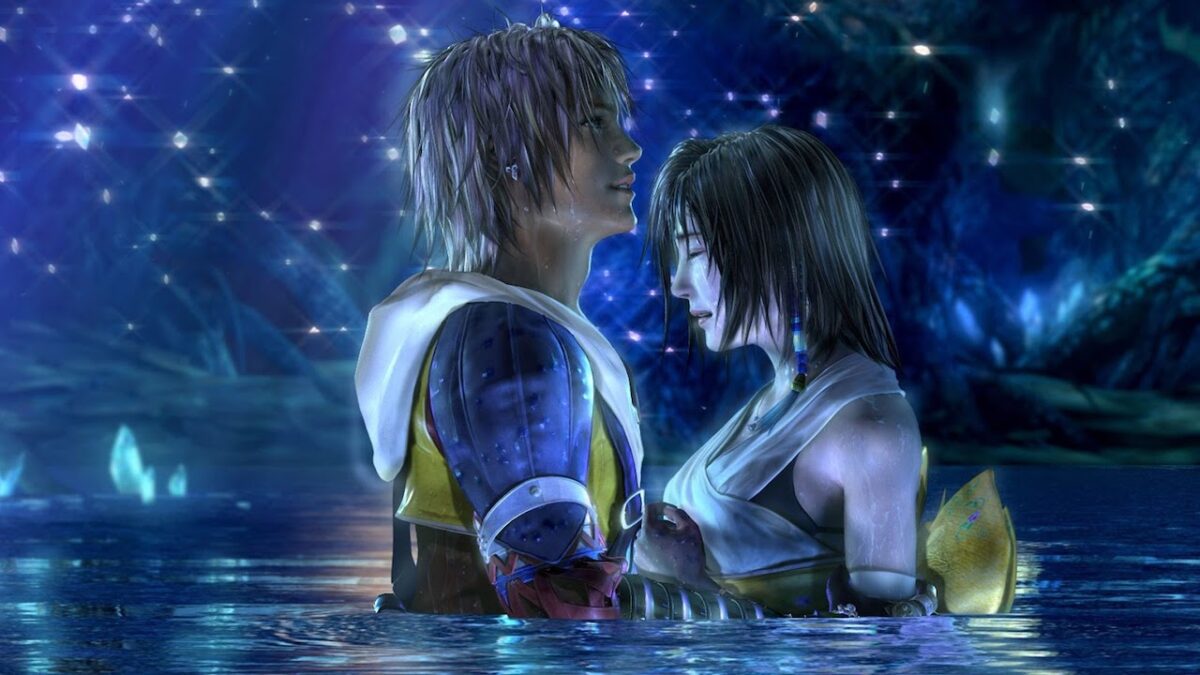
Metacritic: 9.2
Final Fantasy X marked the first entrance of the series into the PS2 generation, and Sakaguchi’s Final, Final Fantasy game. The visuals were impressive back in 2001, and case can be made for the game still looking pretty good. The CG scenes were more advanced than anything seen in the industry at the time, and it had engaging love story between protagonists Tidus and Yuna.
Final Fantasy X did away with the miniaturized world map, and instead was largely linear and focused affair, though towns and NPCs were present. The game also introduced voice acting to the series and it also had one of the most memorable soundtracks in full orchestrated glory.
The game ended up selling 8.5 million units on the PS2 alone.
Why it earned its ranking:
Final Fantasy X delivers on Final Fantasy VIII’s failed promise of an epic and touching love story. Final Fantasy X also delivered what I find to be the series most enjoyable brand of turn based combat, as it is fast paced, and you can swap characters in and out. The Sphere grid progression system was also a blessing and I find it to be my favorite way of leveling up characters in an FF game alongside FFVII’s Materia system.
On the music side Uematsu says goodbye to the series with one of this best soundtracks ever, ‘Suteki Da Ne’ is one of the most beautiful tracks that you will ever hear.
Final Fantasy X got pretty much everything right. The story as a whole is not as memorable as the more iconic stories of Final Fantasy (VI and VII), but Tidus and Yuna left an impression on me. The heart wrenching finale is probably the best in the series along with IX’s memorable ending. Final Fantasy X also gave us Auron. If you need an explanation of Auron’s awesomeness, then it means that you never played the game.
Why it might not:
Two words and two numbers: FFX-2. The game ruined FFX’s open ending as a stand alone story, and started the tradition of Squaresoft milking the franchise. The travesty that was FFXIII (and XIII-2, XIII-3) had its roots here. Truly this isn’t FFX’s fault, but the blame has to fall somewhere. Some would say that Final Fantasy X was too linear, and streamlined in nature.
Mont Cessna’s take:
FFX is the best game in the series, in my opinion. The first in the series on the PS2, the visuals are a big upgrade from FFIX. Combat is also excellent, and fast paced. Think of all the good things about PS1 FF games, except on the PS2. My only gripe is that the game isn’t longer.
3. Final Fantasy VI (SNES) 1994
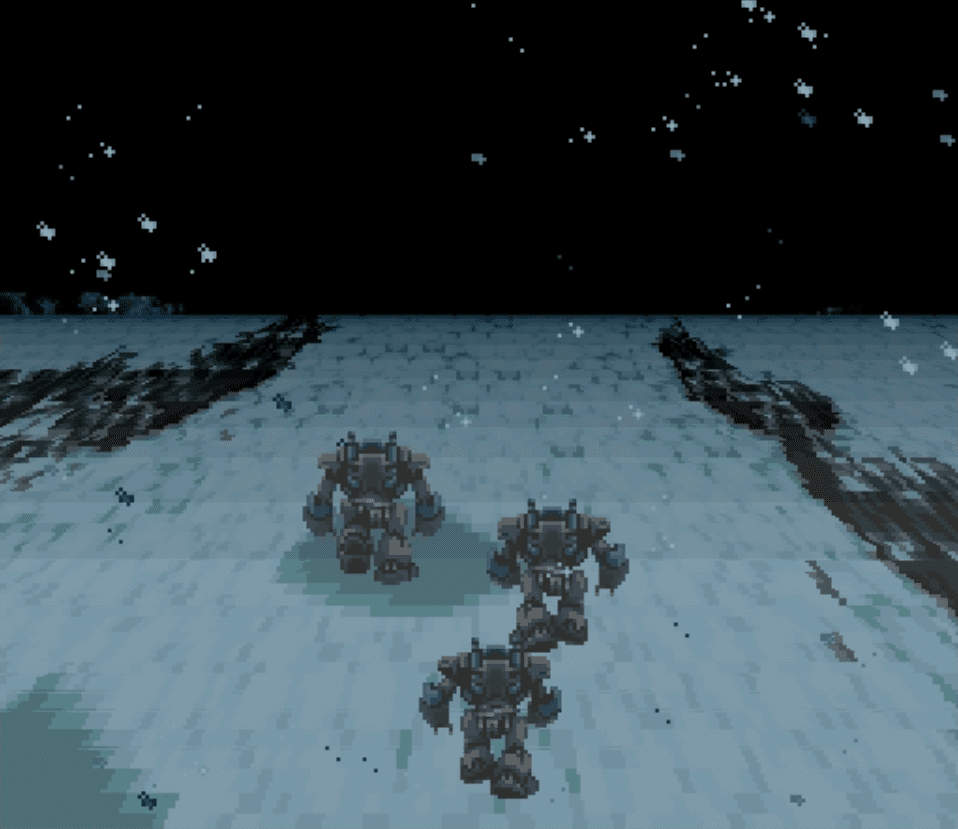
NER Score: 9.5 (Anthology Edition)
GameRankings Score: 9.4
Final Fantasy VI was known as Final Fantasy III in America back when it was first released on the SNES in 1994. The game was truly the culmination of the series during the 16 bit era, it was incredibly polished and remains a standard for 2-D JRPGs to this day.
Featuring improved graphical fidelity from its predecessors, and a more dramatic way of storytelling, it was perhaps the first cinematic JRPG without the use of actual FMVs. The game introduced a likable cast of characters, all with their unique backgrounds and stories to tell. FFVI would also mark the first departure of the series from the Sword and Sorcery themes in relation to the Crystals and into a new mix of technology and magic closely resembling a Steam Punk setting. The series wouldn’t return to its roots again until the 9th installment.
Why it deserves its ranking:
Before any praise is given to the game, you must watch the video below and listen to its melody. There is not a more haunting track in the Final Fantasy series than what perhaps is Uematsu’s best composition ever in “Aria di Mezzo Carattere”:
In short. There is too much that Final Fantasy VI did right, in fact it was a struggle for me to properly rank the game in this list simply because after all of the ‘Final Fantasy VII compilation’ garbage (including the so called “Remake” which should have been FFVII-2 instead) I feel that FFVI still keeps its mystique as a legendary game, and FFVII has lost some of its luster.
Final Fantasy VI was the first Final Fantasy game where every party member was given near equal importance, as the developers wanted to create a game where every party member was the protagonist. The game succeeded partly at that, simply because Terra, Celes and Locke were too endearing.
I am surprised SquareEnix hasn’t attempted to milk Final Fantasy VI’s universe, which is for the best considering what has been done to FFVII. That said, FFVI is equally as great as FFVII, I just have a personal preference for the PS1 classic. FFVI could easily be the number one game on this list.
Why it might not:
There are not many good reasons for the game not earning its place in the top three…but for the sake of argument here we go!
Kefka is overrated. One of the big contention point amongst fanboys in forums is whether Kekfa is the best villain the series has ever seen. To that I say, Kefka is as good a villain as Game of Throne’s Joffrey. They are both wimps who somehow found themselves in a position of power, one was a pampered child, and the other is a mad scientist/wizard with a clown complex.

FFVII’s Sephiroth was a guy that you didn’t want to cross swords with from the get go, and Kefka was a guy that you regretted that the game didn’t give you an opportunity to kill his puny little behind in Figaro’s desert when the game had a chance early to end its run of lunacy. Some will point out to Kefka’s ending of the world as his trump card in the villain rivalry with Sephiroth. But Kefka didn’t end the world, he just destroyed it. The main party comes away alive and well from the predicament. Sephiroth did, for his part, kill one of the most important characters in the main party which in the end was more personal, and unforgiving (that Sephiroth bastard had to pay!) for the player.
Mont Cessna’s take:
Hate me all you want, but I think FF6 is better than FF7. It is actually my #2 FF game. FF6 had noble heroes trying to save the world, excellent music, a number of very emotionally powerful scenes, and decent combat. Well worth playing through. Also, Kefka would beat Sephiroth in a fight. Samuel’s opinion that Kefka is like Jeoffrey from GoT is heresy.
2. Final Fantasy VII (PS1) 1997
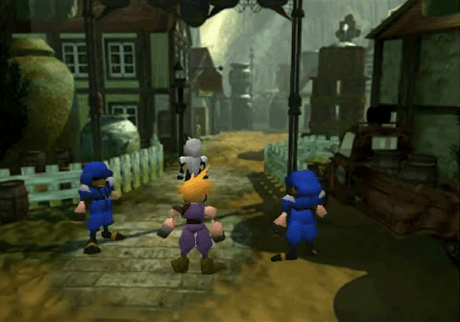
Metacritic: 9.2
Final Fantasy VII boomed the JRPG genre into its golden era in 1997. A massive marketing campaign, including one commercial that took shots at the Nintendo 64’s cartridge format, help FFVII to become the highest selling (10 million units on PS1) FF in history, and the series most prostituted entry yet. Its popularity has held fast for more than 2 decades, which it’s both its blessing and curse.
Final Fantasy VII brought the series into the 3-D dimension with the clever use of pre-rendered backdrops for cities and dungeons, and a large (at the time) traversable world map in 3 Dimensions which replaced the previous use of Mode 7 graphics for the world map trick in its predecessors.
The game also built on FFVI’s plot structure crafting an even deeper storyline, with deeper characters. The story would be aided this time around by CG cutscenes depicting some of the game’s most dramatic moments.
1997 was an unforgettable year, we were still in the midst of the 90’s, music was still good and that particular year brought us Natalia Imbruglia and Final Fantasy VII. Thank you 1997!
Final Fantasy VII is every bit as great as FFVI was, but in terms of story it takes everything a little further, and little deeper. It was a literary masterpiece, at least as far as video games went, bad translation be damned Final Fantasy opened our feeble teenage minds as to how mind blowing Sci-Fi stories could be.
The game launched thousands of kids into writing careers (as evidenced by the mass amount of FFVII themed fan pics), and turned the Final Fantasy brand into a mainstream sales success (which eventually led to the its demise in quality, but that’s a story for another day). Final Fantasy VII opened the door for JRPGs to become one of the “cool” and popular gaming genres of the 90s, it also opened the door for Square to release a vast collection of ports of previous FF entries, and even the great Chrono Trigger saw a PS1 port in the FF Chronicles edition.
Apart from its influence on the market -FFVII the game – was an absolute masterpiece. The combination of an engrossing storyline, the most heartbreaking moment in video gaming history, gorgeous visuals, incredible music, and a refinement on the series gameplay, made FFVII the ultimate JRPG experience on the planet.
The side quests, and mini games rounded out what at the time was considered a near perfect package that would only be surpassed in its genre by our next entry in the top ten.
Why it might not:
Some of the mystique is gone now. The compilation of FFVII and the new remake/sequel have muddled the memories of how great the original truly was. Some would say the 3rd disc was rushed, and they would be right it. There is also the issue with the blocky super deformed characters which honestly looked like utter garbage in contrast to what we would see in FFVIII’s character models 2 years later.
A case can be that made FFVI is better when taken as a whole into consideration. That is a case that I can debate against, but can also make a good argument for.
Mont Cessna’s take:
I rank this #3. Compared to a more modern FF like FFX, the gameplay is slow, the dialogue isn’t the greatest and the combat can be a bit simplistic, but it’s a solid game that really exploded JRPGs into the mainstream in the West.
1. Final Fantasy IX (PS1) 2000
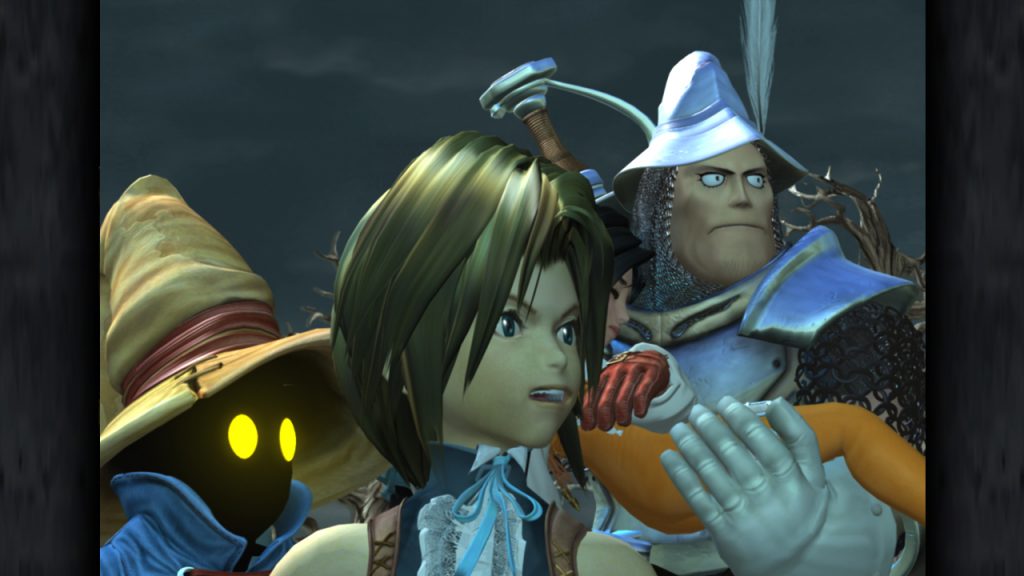
Metacritic: 9.4
Final Fantasy IX was the last FF game on the PS1, one that was conceived by Sakaguchi himself, and it marked the return of the series to the sword and sorcery setting of old. The wooden flying ships were back, as were the black mages. The visual style called for Amano to return, and he did return in glorious style.
FFIX doesn’t have the fanfare of the previous two titles as demonstrated by its more moderate 5.5 million (PS1) sales. But its critical reception in unmatched by the other FF entries. A perfect way to enter the new millenium along with Chrono Cross, Majora’s Mask, and Linkin Park.
Why it deserves its ranking:
Final Fantasy IX is the culmination of more than a decade of game making by Hironobu Sakaguchi. The game is polished to perfection. Square showed its mastery of the PS1 hardware, storytelling, and pacing in FFIX. None of the problems that plagued previous entries are present here, the game is excellent, and even manages to mix a few elements from previous entries into its storyline and characters.
The lack of humor, a big issue in the series prior to this entry is solved in FFIX, and even in its lighter approach it manages to deliver a compelling, drama filled story than even delivers a competent romantic pairing between our two main Protagonists Zidane and Garnet.
FFIX arrived during PS2’s launch window, which is probably why the game didn’t sell as well as the two previous entries, because in terms of quality it is hard to point a single glaring flaw in this game. This is truly the pinnacle of the FF series under its original creator, and the series only had one way to go after it: Down.
Why it might not:
Unless you have a personal preference for any of the games on this list, I don’t see how FFIX isn’t the best FF game ever made.
Mont Cessna’s take:
A well-polished game, FF9 might be a little too polished. I found the characters and story kind of bland and predictable. The graphics are also a bit much for display on a regular, old CRT television and can be muddy at times. This is probably my #4 Final Fantasy game, as it is very polished and retains the classic style we all love.
Agree with the author? Couldn’t disagree more and are frothing at the mouth to tell him? Leave a comment here, on Facebook or send an email and make sure to follow Never Ending Realm on Facebook, Twitter, and YouTube!
FFIX THE BEST!?!?! Anyone who says they had lost all credibility of judging FF games! The worst by far outside of XII! Yeah, Bye Gurl, BYEEEE!!!!!
It is the highest rated FF of all-time though according to metacritic, and it seems the majority of fans agree (outside of hardcore FF6/FF7 people). Not my favorite but commercially and critically it is the most successful FF game.
The same “True Final Fantasy” misconceptions in the list and the dumb mentality of the first comment here make me glad I got the hell out of games for as long as I did. Too much nonsense.
While I agree with most of your sentiments and critiques overall guys (although I would have FF4, 6 and 7 all above 9) you lose ALL credibility with your complete dismissal of FFIV, which is EASILY top 4. It must indeed be because you missed out playing it originally back in the day that you look upon it so unfavourably, and yes the graphics in particular are a bit dated (yet still charming).
But not only does its story still beat the pants off of 8 and 15, as do its characters, but the MUSIC, guys, the MUSIC. It’s still one of the best 3 soundtracks in the series and the high fantasty setting is more epic than any other game in the series. And you didn’t mention the soundtrack ONCE in your writeup. Definitely a major fail there.
Love your site, and agree most of all that FFXIII is an absolute piece of crap that should never ever be spoken of again except to hold up to Square and say ‘NEVER DO ANYTHING LIKE THIS AGAIN’, that Tetsuya Nomura is an absolute disaster and should be kept as far away from character design and creative control/plot as possible (I do love his FFV enemy design though… but my god, he overdesigns everything… Kingdom hearts/FFX…. SO MANY ZIPPERS….) and every storyline he touches turns to absolute crap… and that FFVIII is also a hot pile of garbage.
But FFIV isn’t just my favourite game of all time, but objectively it’s one of the best in the series, AND was by FAR the most revolutionary game in the series. It’s absolutely insane the blasphemy you wrote unfavourably comparing it with Lunar (which did for the record also have a great story and decent soundtrack but its battle system was as boring as watching paint dry). FIX IT!
ALso FFV despite the lame plot and lamer villain (Exdeath is no worse than Ultimecia, and the plot still made more sense than VIII or 13’s) is a better game than 8 or 15
This is incorrect. First of all FF6 is the most acclaimed game in the series. It’s the top rated and has the highest metacritic score. Not FF9.
Not true. First of all, FF6 has a GameRankings score we have saved, not a metacritic, and FF6 and FF9 are tied GameRankings vs Metacritic. At 94%
People need to except that FF6 is critically the most acclaimed game in the series. It’s a matter of an opinion, but it has the highest metacritic score at 95%. It is consistently ranked the highest FF on most top game list. IGN, Gamespot and various other outlets.
94%
Sorry Mont Cessna. I don’t know where you’re getting your information, but 6 is critically the top rated game by most magazines and critics. FF6 has 95% ranking. Do some research before such obviously Incorrect statements. FF6 and Chrono Trigger are almost always among the top RPGs when best the topic is brought.
FF6 (III) was not a commercial success at all in the US when it was released and has only become a cult classic. FF6 has a 94% GameRankings score (I have an archive of all their scores, ever) vs the 94% FF9 has on Metacritic.
This is a best FF game opinion article and multiple people chose the top one for this via a vote. It’s not 100% based on critic scores, but FF9 and FF6 were tied on Metacritic/GameRankings at 94% not 95% when this article was written.
FF6 used to be my favorite but FFX is now, personally.
*Shrug*